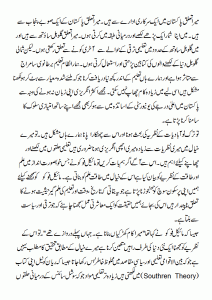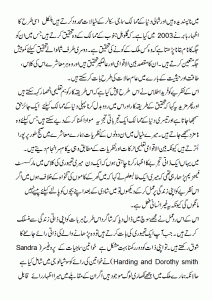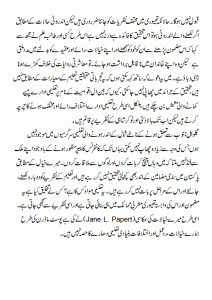by Rabbia Aslam
(English below)



Download Rabbia’s contribution in Urdu!
I write from a place within the public sector in Pakistan. I am from Pakistan and I live in the province of Punjab. There’s one privilege in my life, which is to belong to and be educated from middle class family background. I am based at a leading research university in Pakistan. Working in the global south gives me an insider’s view from the periphery, the global south. Nevertheless, I have been educated to quote and read and refer to books and works published by the famous authors or feminists of the global north. Due to the effect of colonialism on education and the Western scholarship as the standard medium of knowledge production I am unable to publish a lot like many other scholars of global north and south. I am often encountering that language keeps me at the periphery, even whilst being at the core of Pakistani academia. Even after decolonial perspectives have gained some prominence, there are only very few people who understand this debate. In our context, it is a tedious task to think about decolonical perspectives. Language is very important to determine the worth of my piece of work instead of my ideas.
I am privileged to teach at the place which is known as to be representative of diversity. That is the reason I have space to start conversations during teaching classes of gender studies, but this discussion is not part of wider knowledge production in academic language. However, I think it is part of co-production. For example, when I teach feminist theories, a western theory does not make sense to the students who come from peripheries (for example Baluchistan and the Federally Administered Tribal Area (FATA) [1] of Pakistan, especially if it does not resonate with their daily lives. Due to our colonial education system and so-called standardized medium of knowledge production we are taught to think that only tangible discourses can be part of research methodologies and processes of knowledge production. Of course, as argued by Linda T. Smith, decolonial methodologies are taken up by scholars around the world. But still, in Pakistan we cannot dare to think to do doctorate research with decolonial methods in our education system. Decolonization remains tokenism in the context of Pakistan. Michel Foucault shaped a radically different understanding of the relationship between knowledge and power, he saw power as being the ability to shape knowledge. To understand Foucault, we must let go of our comfortable and conventional understanding of truth as an objective and factual entity which exists outside time and history, and which cannot be manipulated by ordinary mortals. Instead, we must learn to see truth as a social product, which is created and shaped by politics and power. As Foucault said, “My job is making windows, where there were once walls.” Absorbing Foucauldian insights opens windows onto entirely new ways of seeing the world. In my view, this is the purpose of research scholarship and inquiry which is ignored in the academic endeavors and global politics of knowledge[2]. As Raewyn Connell argues in her book, ‘’Southern Theory’’, the wider knowledge base is disregarded by mainstream social sciences. The global north continues to dominate the imagination of social scientists.
Scholarship carried out by Southern researchers in the global south conventionally names the site of its research and generally offers the product as ‘merely’ a case study, while Northern scholarship rarely makes reference to the geographical location of the research, assuming the studies to have universal relevance and a capacity to produce generic claims about the processes of class, status and power in all societies. (Baber, 2003)
Alatas’ name for the process behind such practices is ‘academic dependence’, and he takes the claim further, arguing that theoretical and methodological innovations are considered legitimate tasks for scholars in the First World, while the designated role for those of the Third World is empirical data collection (Alatas, 2003). Baber’s and Alatas’ views are truly applicable in my context because mostly we are simply doing empirical data collection and theories are generated and crafted in the first world[3] due to global power dynamics.
I want to share one lived experience here. In one class teaching critique on Marxist feminism one of my students voiced that she was against the campaign for household work wage. She said: “I feel very bad when I apply this to my life. I would never ask for the wage of child rearing in my marriage. This is totally in-human.’’. This comment made me realize that students feel application essential in theory class and they want to know the instructors’ opinions. Subjectivity of one’s own cannot be kept aside in the whole process of interactive discussions within classrooms. Feminist sociologists such as Sandra Harding and Dorothy Smith add on women perspectives and talk about researcher’s subjectivity in feminist research and in the field of sociology as well. While knowing various perspectives is important, the absence of content in indigenous contexts and by indigenous writers makes the whole exercise detached from society. Another student thinks that ’Somehow, the theory helped to understand and deconstruct their own attitudes, beliefs and thought processes but when you did not get acceptance in your family then it becomes mental torture for one to stand up against the traditional norms of the society.’’ I can claim that these empirical experiences and evidences are not written in the part of standard medium of knowledge production in the academic journals after internalization of academia as a money generating enterprise.
By the same token, even though academic scholarship is also trying to claim diversity, it is still hegemonic and very bureaucratic in nature. Being a scholar of the global south, I cannot be part of international academic networks, which is one of the reasons for less published articles. Even after I receive acceptance letters for the conference, due to lack of funds from my own country I am unable to be part of global north events, discussions and conferences. Therefore, I cannot publish due to less networking in the first world[4] and even among the third world countries of the globe. I do believe that in social sciences at Pakistan we are not redefining the definition of knowledge production, its processes and formation. Whose knowledge is it? Who constructs and shapes knowledge for the third world? The subject and related theories evolved in the West and are generally being understood from those perspectives. Jane Papart argues that post-modernism challenges the notion that concepts such as knowledge and justice can be evaluated and established as universally correct (Parpart, 1993). Similarly, our perspectives, reactions and contradictions are absent from the mainstream view of the social sciences across the globe. Our contestations and connotations are not considered, despite of being valid and authentic academic knowledge.
Rabbia Aslam is currently a lecturer at the Centre of Excellence in Gender Studies, Quaid-e-Azam University, Islamabad, Pakistan, with which she has been associated for the last nine years. With an academic background in sociology and gender, her research and teaching areas include gender based violence, gender and development, bifurcation in the education system, post- and decolonical thinking in Pakistan.
References
Alatas, S. F. (2003). Academic Dependency and the gLobal Division of labour in the Social Sciences. Current Socology, 51(6), 599-613.
Baber, Z. (2003). Provincial Universalism: The Landscape of Knowledge Production in an Era of Globalization. Current Sociology, 51(6), 615-623.
L.Parpart, J. (1993). Who is the Other?; A postmodern Feminist Critique of Women and Development Theory and practice. Development and Change, 24, 439-464.
[1] FATA and Baluchistan are two regions of Pakistan
[2] I mean to say that like according to Foucault to know the world entirely from a new perspective is important. I agree with Foucault but I do not think that to abandon scholarship of the Global North is my agenda. That is why I still refer to him with regards to how power shapes knowledge. ,
[3] Atlas and Baber both used the term of first world, that is why; I am using it in their views.
[4] Again I would say that first world mean that the developed countries of the World and Third World refer to the developing countries of Asia, Africa and Latin America.
